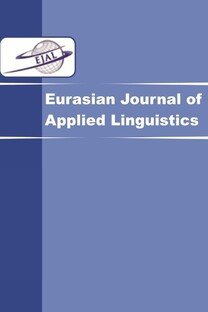Iranian EFL Learners’ Perception of the Importance and Frequency of Teachers’ Motivational Strategies
The purpose of this article is to study the perception of Iranian EFL learners of the importance and frequency of their teachers’ motivational strategies. Preceded by a few similar studies, this research study was conducted in the cultural milieu of Iran where learners have different characteristics compared to their counterparts in other areas of the world. A total of 168 students took part in the study and completed a Likert scale questionnaire on both importance and frequency of the motivational strategies in their language classrooms. The descriptive and correlational analyses revealed that there is relative congruence between what the students regarded to be important and what their teachers performed in the classrooms. Besides, the students’ choice of the strategies shows that they consider the teacher as the major model and source of confidence. The results are discussed with particular attention to the cultural context of Iran
___
- Alison, J., & Halliwell, S. (2002). Challenging classes: Focus on pupil behaviour. London: Centre for Information on Language Teaching and Research.
- Bernaus, M., & Gardner, R. (2008). Teacher motivation strategies, student perceptions, student motivation, and English achievement. The Modern Language Journal, 92(1), 387–401.
- Bernaus, M., Wilson, A., & Gardner, R. (2009). Teachers’ motivation, classroom strategy use, students’ motivation and second language achievement. Porta Linguarum, 12(1), 25–36.
- Cheng, H. F., & Dörnyei, Z. (2007). The use of motivational strategies in language instruction: The case of EFL teaching in Taiwan. Innovation in Language Learning and Teaching, 1(1), 153-174.
- Csizér, K., & Kormos, J. (2009). Learning experiences, selves and motivated learning behavior: A comparative analysis of structural models for Hungarian secondary and university learners of English. In Z. Dörnyei & E. Ushioda (Eds.), Motivation, language identity and the L2 self (pp. 98-119). Bristol: Multilingual Matters.
- Dörnyei, Z. (1998). Motivation in second and foreign language learning. Language Teaching, 31, 117-135. doi: 10.1017/S026144480001315X
- Dörnyei, Z. (2001). Motivational strategies in the language classroom. Cambridge: Cambridge University Press.
- Dörnyei, Z. (2005). The psychology of the language learner: Individual differences in second language acquisition. New Jersey: Lawrence Erlbaum Associates.
- Dörnyei, Z. (2006). Individual differences in second language acquisition. AILA Review, 19, 42-68. doi: 10.1075/aila.19.05dor
- Dörnyei, Z. (2007). Creating a motivating classroom environment. In J. Cummins & C. Davison (Eds.), International handbook of English language teaching (Vol. 2, pp. 719–731). New York: Springer.
- Dörnyei, Z. (2009). The L2 motivational self system. In Z. Dörnyei & E. Ushioda (Eds.), Motivation, language identity and the L2 self (pp. 9-42). Bristol: Multilingual Matters.
- Dörnyei, Z. & Csizér, K. (1998). Ten commandments for motivating language learners: Results of an empirical study. Language Teaching Research, 2(3), 203-229. doi: 10.1177/136216889800200303
- Gardner, R. C., & Lambert, W. E. (1959). Motivational variables in second language acquisition, Canadian Journal of Psychology, 13(4), 266-272.
- Gardner, R. C., & Tremblay, P. F. (1994). On motivation, research agendas, and theoretical frameworks. The Modern Language Journal, 78, 359-368. doi: 10.1111/j.1540-4781.1994.tb02050.x
- Guilloteaux, M., & Dörnyei, Z. (2008). Motivating language learners: A classroom-oriented investigation of the effects of motivational strategies on student motivation. TESOL Quarterly, 42(1), 55-77. doi: 10.1002/j.1545-7249.2008.tb00207.x
- Hiromori, T. (2009). A process model of L2 learners’ motivation: From the perspectives of general tendency and individual differences. System, 37, 313-321. doi:10.1016/j.system.2008.11.009
- Kumaravadivelu, B. (2006). Understanding language teaching: From method to postmethod. Mahwah, NJ: Lawrence Erlbaum Associates.
- MacIntyre, P. D., & Blackie, R. A. (2012). Action control, motivated strategies, and integrative motivation as predictors of language learning affect and the intention to continue learning French. System, 40, 533-543. doi: 10.1016/j.system.2012.10.014
- Moskovsky, C., Alrabai, F., Paolini, S., & Ratcheva, S. (2012). The effect of teachers’ motivational strategies on learners’ motivation: A controlled investigation of second language acquisition. Language Learning, 63(1), 34-62. doi: 10.1111/j.1467-9922.2012.00717.x
- Kormos, J., Kiddle, T., & Csizér, K. (2011). Systems of goals, attitudes, and self-related beliefs in second-language-learning motivation. Applied Linguistics, 32(5), 495-516. doi:10.1093/applin/amr019
- Oxford, R., & Shearin, J. (1994). Language learning motivation: Expanding the theoretical framework. The Modern Language Journal, 78(1), 12-28. doi: 10.1111/j.1540-4781.1994.tb02011.x
- Pallant, J. F. (2013). SPSS survival manual: A step by step guide to data analysis using SPSS (5th ed.). Berkshire: Open University Press.
- Papi, M. (2010). The L2 motivational self system, L2 anxiety, and motivated behavior: A structural equation modeling approach. System, 38(3), 467-479. doi:10.1016/j.system.2010.06.011
- Papi, M., & Abdollahzadeh, E. (2011). Teacher motivational practice, student motivation, and possible L2 selves: An examination in the Iranian EFL context. Language Learning, 62(2), 571-592. doi: 10.1111/j.1467-9922.2011.00632.x
- Ruesch A., Bown, J., & Dewey, D. P. (2012). Student and teacher perceptions of motivational strategies in the foreign language classroom. Innovation in Language Learning and Teaching, 6(1), 15-27. doi: 10.1080/17501229.2011.562510
- Spolsky, B. (2000). Anniversary article; Language motivation revisited. Applied Linguistics, 21(2), 157-169. doi:10.1093/applin/21.2.157
- Taguchi, T., Magid, M., & Papi, M. (2009). The L2 motivational self system among Japanese, Chinese and Iranian learners of English: A comparative study. In Z. Dörnyei, & E. Ushioda (Eds.), Motivation, language identity and the L2 self (pp. 66-97). Bristol, England: Multilingual Matters.
- Weger, H. D. (2013). Examining English language learning motivation of adult international learners studying abroad in the US. RELC Journal, 44(1), 87-101. doi:10.1177/0033688212473272
- ISSN: 2149-1135
- Yayın Aralığı: 3
- Başlangıç: 2015
- Yayıncı: Ece Zehir Topkaya
